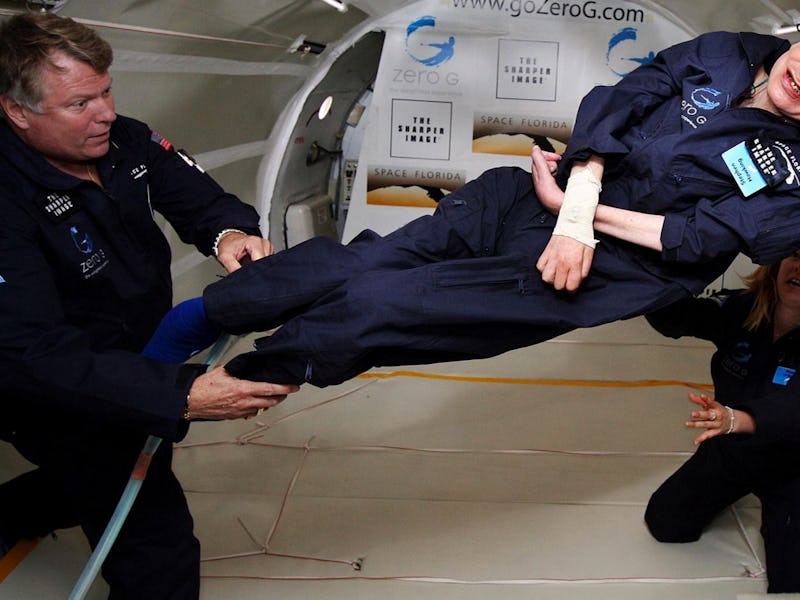Why Stephen Hawking Booked a Ticket to Space on Virgin Galactic

Renowned physicist Stephen Hawking thinks that the first private astronauts will be the pioneers of the solar system — humans that will ask the big questions and return to Earth with knowledge that will change it for the better. And with a Virgin Galactic SpaceShipTwo ticket given personally to him from Richard Branson, Hawking plans on being one of these explorers.
Hawking explains his decision to accept the ride, which secures him a seat on future launch of the Virgin Spaceship (VSS) Unity, in an excerpt from How to Make A Spaceship shared Monday by The Guardian. He says that the “feeling of true freedom” he experienced while weightless during a zero gravity moment in a Boeing 727 is in part why he immediately said yes to Branson’s offer.
But more importantly, Hawking wants to be part of the movement that will get humans out into the galaxy and away from their inherently dangerous home, Earth.
“I think the human race has no future if it doesn’t go to space,” Hawking explains.
He hasn’t been shy about expressing his belief that humanity is doomed, and that the best course of action for the survival of our species is human colonies on other planets. On the one hand, accepting a ticket out of here is a noble step to help lead the way. On the other hand, it’s also a self-serving way for Hawking to get the heck off this failing rock and save himself.
The question is: Is Virgin Galactic really the private space company Hawking should be counting on to save us all?
Hawking’s relationship to the company is quite close. He was the one who announced the name of the VSS Unity in February, and the ship’s exterior is emblazoned with an image of his own eye.
But with a fatal test flight that proved to be a major setback and a founder who appears to prioritize getting to the finish line first over technical prowess, Virgin Galactic is far from a first place position in the private sector space race. SpaceX founder Elon Musk plans on taking civilians to Mars by 2025 and Blue Origin’s Jeff Bezos has said his company will send tourists to space by 2018. Virgin Galactic hasn’t released any timeline for when it plans to do the same.
In other words: It’s unclear whether the company can overcome its own limitations and its competitors’ rapid progress to send humans to space first. Hawking may have hitched his cart to the wrong rocket, so to speak.
Hawking writes in How to Make a Spaceship that he doesn’t mind making daredevil decisions. But the choice to go with Virgin Galactic may prove to be more daring than the physicist hopes for.